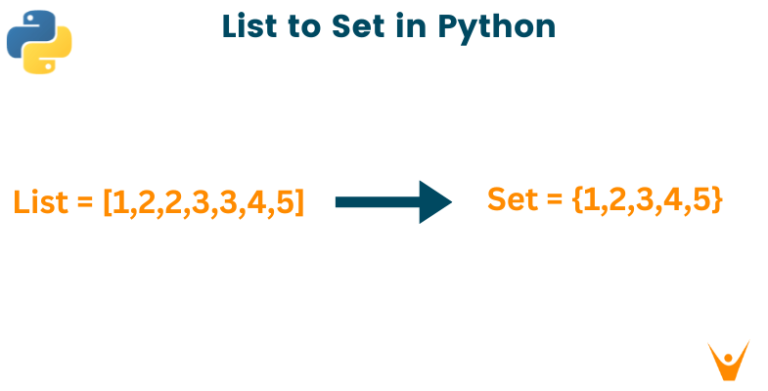Hire Android NDK Developers in 2024: What You Need to Know About the Latest Trends and Technologies
Android NDK (Native Development Kit) is a toolset that allows developers to write native code in C and C++ for Android applications. It enables developers to access low-level APIs, optimize performance, and reuse existing code libraries. Android NDK is especially useful for developing high-performance apps that require intensive computation, graphics, or audio processing. However, to hire Android NDK developers is not an easy task, as it requires a high level of technical expertise, experience, and knowledge.
Moreover, the Android NDK landscape is constantly evolving, with new trends and technologies emerging every year. Therefore, if you want to hire Android NDK developers in 2024, you need to be aware of the latest developments and best practices in the field. In this article, we will explore some of the most important trends and technologies that will shape the future of Android NDK development in 2024, and how they will affect your hiring decisions.
What are Android NDK Developers?
Android NDK Developers are professionals who utilize the Android Native Development Kit (NDK) to craft native code in C or C++ for Android applications. This kit enables access to low-level APIs, enhances performance, facilitates code library reuse, and enables the implementation of features unavailable in the Android framework.
The skills and duties of Android NDK Developers encompass:
– Proficiency in C or C++, the primary languages for NDK development.
– Utilization of NDK tools and libraries for native code module creation and compilation.
– Integration of native code with Java code via the Java Native Interface (JNI).
– Debugging and testing of native code using tools like GDB, LLDB, and AddressSanitizer.
– Profiling and optimization of native code using tools such as SimplePerf, Traceview, and Systrace.
– Support for various architectures and platforms including ARM, x86, and 64-bit.
– Continuous learning of new NDK features and technological advancements.

Android NDK Developers contribute to a wide array of projects, including:
– Games and graphics-intensive applications requiring high performance and rendering control.
– Audio and video processing applications necessitating access to low-level media codecs and hardware.
– Machine learning and computer vision applications leveraging native libraries like TensorFlow Lite and OpenCV.
– Security and encryption applications utilizing native libraries such as OpenSSL and BoringSSL.
– Embedded and IoT applications interacting with sensors and devices.
To enhance their skills and knowledge, Android NDK Developers can access resources such as:
– Android’s official website, offering NDK downloads, documentation, guides, samples, and more.
– Engaging with Android’s online community through forums, blogs, podcasts, events, and meetups.
– Exploring Android’s developer portal to connect with various industry players.
– Leveraging online platforms like Coursera for expert-led courses.
– Contributing to and learning from open-source projects on platforms like GitHub.
Top trends of Android NDK you should know
Trend 1: Kotlin Native
Kotlin is a modern and concise programming language that is fully compatible with Java and Android. It offers many advantages over Java, such as null safety, coroutines, data classes, and extension functions. Kotlin Native is a technology that allows developers to compile Kotlin code to native binaries that can run on different platforms, such as iOS, Windows, Linux, and Android. Kotlin Native can interoperate with C and C++ code, and use the Android NDK APIs. This means that developers can use Kotlin to write native code for Android apps, and enjoy the benefits of both Kotlin and Android NDK.
Trend 2: Android Studio NDK Support
Android Studio serves as the designated integrated development environment (IDE) for crafting Android applications. It provides a comprehensive set of tools and features to help developers create, test, debug, and deploy Android apps. Android Studio also supports Android NDK development, with features such as:
- CMake and ndk-build integration: Developers can use CMake or ndk-build to build their native code, and Android Studio will automatically sync the project and generate the APK.
- LLDB debugger: Developers can use the LLDB debugger to debug their native code, and set breakpoints, watch variables, and inspect memory.
- Native code editor: Developers can edit their native code in Android Studio, and use features such as code completion, syntax highlighting, and refactoring.
Trend 3: Android Neural Networks API
The Android Neural Networks API (NNAPI) is a framework that allows developers to run machine learning models on Android devices. It provides a hardware abstraction layer that enables developers to leverage the available hardware accelerators, such as GPUs, DSPs, and NPUs, to run their models faster and more efficiently. The NNAPI supports a set of common operations, such as convolution, pooling, activation, and normalization, that are used in most machine learning models. Developers can use the NNAPI to run their models natively on Android devices, and use the Android NDK to access the NNAPI functions and data structures.
Trend 4: Android Game Development Extension
The Android Game Development Extension (AGDE) is a plugin for Android Studio that simplifies the process of developing native games for Android. It provides a set of tools and features to help developers create, test, debug, and optimize their games, such as:
- Game project templates: Developers can use the game project templates to create native games using CMake or ndk-build, and configure the game settings, such as orientation, resolution, and icon.
- Game loop profiler: Developers can use the game loop profiler to measure the performance of their game loop, and identify and fix bottlenecks, such as CPU, GPU, memory, or network usage.
- Frame capture: Developers can use the frame capture feature to capture and analyze the rendering of a single frame of their game, and inspect the draw calls, textures, shaders, and state changes.
Trend 5: Android 12 NDK Changes
Android 12 is the latest version of the Android operating system, which is expected to be released in 2024. It introduces many new features and improvements, such as app hibernation, privacy dashboard, picture-in-picture, and material you design. It also brings some changes and updates to the Android NDK, such as:
- NDK API level 31: Developers need to target API level 31 or higher to publish their apps on Google Play, and use the latest NDK features and APIs.
- NDK r23: This is the latest version of the NDK, which includes the latest toolchains, libraries, and headers, and supports the latest architectures and platforms.
- NDK deprecated features: Some NDK features and APIs are deprecated or removed in Android 12, such as GCC, MIPS, and Vulkan 1.0.
Top best sites to hire Android NDK Developers
Numerous platforms offer opportunities to discover and enlist Android NDK Developers for your endeavors:
– Toptal: A marketplace renowned for sourcing top-tier Android NDK developers, engineers, programmers, architects, and consultants. Toptal rigorously screens and selects freelancers tailored to your requirements, offering the ability to onboard talent within 48 hours, with no associated risk.
– Upwork: A versatile platform enabling project posting and proposal solicitation from Android NDK developers worldwide. Users can assess profiles, reviews, and ratings to identify the most suitable candidate fitting their budget and schedule.
– Aloa: An innovative site connecting users with highly seasoned Android developers, adept at delivering creative solutions. Aloa facilitates matchmaking with ideal developers for specific projects while managing contracts, payments, and project oversight.
– CloudDevs: A platform facilitating connections with premier Android developers drawn from a pool of over 10,000 thoroughly vetted professionals. Clients have the flexibility to engage developers for hourly or fixed-price projects, accompanied by dedicated project management.
– Developers for Hire: A resourceful platform aiding in the location and engagement of freelance Android developers possessing requisite skills and expertise. Users can peruse a curated list of developers, directly initiate contact, or post jobs to receive personalized candidate matches.
How to hire Android NDK Developers
Recruiting Android NDK Developers poses challenges, necessitating the identification of candidates proficient in both Android and native code development. Here are steps derived from online research to aid in hiring Android NDK Developers:
1. Define project requirements: Begin by outlining project specifics to streamline your search for suitable developers. Factors such as project scope, complexity, required features, targeted platforms, budget, timeline, and desired expertise level should be considered.
2. Seek experience: Prioritize candidates with a track record in native code and Android app development. Assess portfolios, resumes, and references to gauge past projects and accomplishments. Key skills and technologies to evaluate include C/C++ programming, familiarity with Android NDK tools and libraries, Java Native Interface (JNI), Android SDK, debugging/testing utilities, performance optimization techniques, and cross-platform/multi-architecture support.
3. Conduct interviews and assessments: Shortlisted candidates should undergo interviews and assessments to evaluate technical prowess and communication abilities. Topics for discussion may include the pros and cons of Android NDK usage, distinctions between Android NDK and SDK, best practices, common challenges, preferred tools/frameworks, and experiences from previous projects. Coding challenges or assignments can also be administered to assess problem-solving skills and coding proficiency.
4. Select the most suitable candidate: After thorough evaluation, choose the candidate best aligned with project requirements, considering factors like skillset, experience, and compatibility. Other considerations may include availability, rates, and feedback.
Conclusion
To hire Android NDK developers in 2024 requires keeping up with the latest trends and technologies in the field, such as Kotlin Native, Android Studio NDK Support, Android Neural Networks API, Android Game Development Extension, and Android 12 NDK Changes.
If you are looking for a reliable and reputable web development company that can provide you with the best Android NDK developers for your project, you can contact ONextDigital, a leading web development service provider that also offers mobile app development, UX/UI design service, white label software service, and CRM & auto marketing automation solution. We has a team of experienced and skilled Android NDK developers who can deliver superior web solutions for your business. Contact us today and get a free quote for your Android NDK project.








